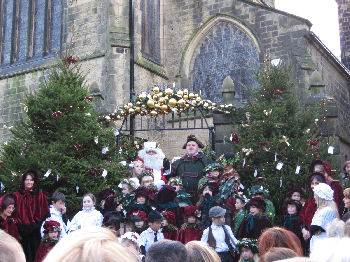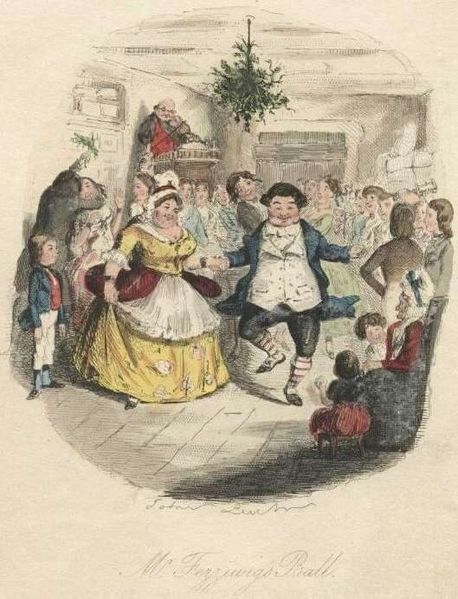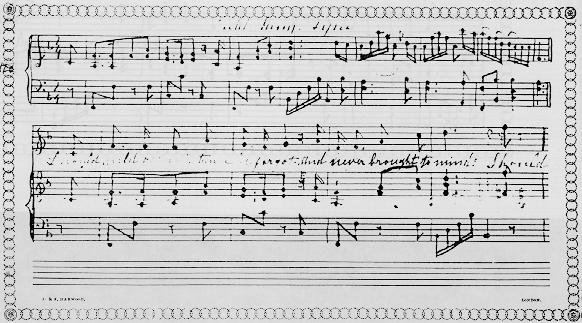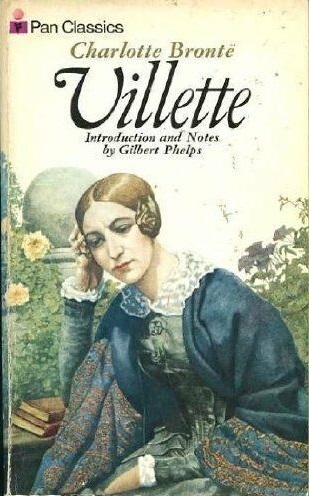December rushes on apace, if you haven’t yet got your Christmas decorations up then it’s probably time to get that old faithful tree down from the attic and start untangling the fairy lights. In today’s post we’re going to look at a seasonal depiction in one of the great Brontë novels.

When we think of Christmas in a Brontë novel we probably think of its depiction in Wuthering Heights. It was the subjects of my latest YouTube video on my House Of Brontë channel, where we look at Emily Brontë’s description of a tense Christmas feast enlivened by the arrival of the Gimmerton band.
A grand house is also the scene for another festive celebration – but this time it appears in Charlotte Brontë’s final completed novel Villette. The grand La Terrase is the setting this time, as the grand family of the Count de Bassompierre, once known by the more down to earth name Home, celebrate an English style Christmas in the heart of Belgium:
‘Cheerful as my godmother naturally was, and entertaining as, for our sakes, she made a point of being, there was no true enjoyment that evening at La Terrasse, till, through the wild howl of the winter-night, were heard the signal sounds of arrival. How often, while women and girls sit warm at snug fire-sides, their hearts and imaginations are doomed to divorce from the comfort surrounding their persons, forced out by night to wander through dark ways, to dare stress of weather, to contend with the snow-blast, to wait at lonely gates and stiles in wildest storms, watching and listening to see and hear the father, the son, the husband coming home.
Father and son came at last to the château: for the Count de Bassompierre that night accompanied Dr. Bretton. I know not which of our trio heard the horses first; the asperity, the violence of the weather warranted our running down into the hall to meet and greet the two riders as they came in; but they warned us to keep our distance: both were white—two mountains of snow; and indeed Mrs. Bretton, seeing their condition, ordered them instantly to the kitchen; prohibiting them, at their peril, from setting foot on her carpeted staircase till they had severally put off that mask of Old Christmas they now affected. Into the kitchen, however, we could not help following them: it was a large old Dutch kitchen, picturesque and pleasant. The little white Countess danced in a circle about her equally white sire, clapping her hands and crying, “Papa, papa, you look like an enormous Polar bear.”
The bear shook himself, and the little sprite fled far from the frozen shower. Back she came, however, laughing, and eager to aid in removing the arctic disguise. The Count, at last issuing from his dreadnought, threatened to overwhelm her with it as with an avalanche.

“Come, then,” said she, bending to invite the fall, and when it was playfully advanced above her head, bounding out of reach like some little chamois.
Her movements had the supple softness, the velvet grace of a kitten; her laugh was clearer than the ring of silver and crystal; as she took her sire’s cold hands and rubbed them, and stood on tiptoe to reach his lips for a kiss, there seemed to shine round her a halo of loving delight. The grave and reverend seignor looked down on her as men do look on what is the apple of their eye.
“Mrs. Bretton,” said he: “what am I to do with this daughter or daughterling of mine? She neither grows in wisdom nor in stature. Don’t you find her pretty nearly as much the child as she was ten years ago?”
“She cannot be more the child than this great boy of mine,” said Mrs. Bretton, who was in conflict with her son about some change of dress she deemed advisable, and which he resisted. He stood leaning against the Dutch dresser, laughing and keeping her at arm’s length.
“Come, mamma,” said he, “by way of compromise, and to secure for us inward as well as outward warmth, let us have a Christmas wassail-cup, and toast Old England here, on the hearth.”
So, while the Count stood by the fire, and Paulina Mary still danced to and fro—happy in the liberty of the wide hall-like kitchen—Mrs. Bretton herself instructed Martha to spice and heat the wassail-bowl, and, pouring the draught into a Bretton flagon, it was served round, reaming hot, by means of a small silver vessel, which I recognised as Graham’s christening-cup.
“Here’s to Auld Lang Syne!” said the Count; holding the glancing cup on high. Then, looking at Mrs. Bretton.—
“We twa ha’ paidlet i’ the burn
Fra morning sun till dine,
But seas between us braid ha’ roared
Sin’ auld lang syne.
“And surely ye’ll be your pint-stoup,
And surely I’ll be mine;
And we’ll taste a cup o’ kindness yet
For auld lang syne.”
“Scotch! Scotch!” cried Paulina; “papa is talking Scotch; and Scotch he is, partly. We are Home and de Bassompierre, Caledonian and Gallic.”

“And is that a Scotch reel you are dancing, you Highland fairy?” asked her father. “Mrs. Bretton, there will be a green ring growing up in the middle of your kitchen shortly. I would not answer for her being quite cannie: she is a strange little mortal.”
“Tell Lucy to dance with me, papa; there is Lucy Snowe.”
Mr. Home (there was still quite as much about him of plain Mr. Home as of proud Count de Bassompierre) held his hand out to me, saying kindly, “he remembered me well; and, even had his own memory been less trustworthy, my name was so often on his daughter’s lips, and he had listened to so many long tales about me, I should seem like an old acquaintance.”
Every one now had tasted the wassail-cup except Paulina, whose pas de fée, ou de fantaisie, nobody thought of interrupting to offer so profanatory a draught; but she was not to be overlooked, nor baulked of her mortal privileges.
“Let me taste,” said she to Graham, as he was putting the cup on the shelf of the dresser out of her reach.
Mrs. Bretton and Mr. Home were now engaged in conversation. Dr. John had not been unobservant of the fairy’s dance; he had watched it, and he had liked it. To say nothing of the softness and beauty of the movements, eminently grateful to his grace-loving eye, that ease in his mother’s house charmed him, for it set him at ease: again she seemed a child for him—again, almost his playmate. I wondered how he would speak to her; I had not yet seen him address her; his first words proved that the old days of “little Polly” had been recalled to his mind by this evening’s child-like light-heartedness.
“Your ladyship wishes for the tankard?”
“I think I said so. I think I intimated as much.”
“Couldn’t consent to a step of the kind on any account. Sorry for it, but couldn’t do it.”
“Why? I am quite well now: it can’t break my collar-bone again, or dislocate my shoulder. Is it wine?”
“No; nor dew.”
“I don’t want dew; I don’t like dew: but what is it?”
“Ale—strong ale—old October; brewed, perhaps, when I was born.”
“It must be curious: is it good?”
“Excessively good.”
And he took it down, administered to himself a second dose of this mighty elixir, expressed in his mischievous eyes extreme contentment with the same, and solemnly replaced the cup on the shelf.
“I should like a little,” said Paulina, looking up; “I never had any ‘old October:’ is it sweet?”
“Perilously sweet,” said Graham.
She continued to look up exactly with the countenance of a child that longs for some prohibited dainty. At last the Doctor relented, took it down, and indulged himself in the gratification of letting her taste from his hand; his eyes, always expressive in the revelation of pleasurable feelings, luminously and smilingly avowed that it was a gratification; and he prolonged it by so regulating the position of the cup that only a drop at a time could reach the rosy, sipping lips by which its brim was courted.
“A little more—a little more,” said she, petulantly touching his hand with the forefinger, to make him incline the cup more generously and yieldingly. “It smells of spice and sugar, but I can’t taste it; your wrist is so stiff, and you are so stingy.”
He indulged her, whispering, however, with gravity: “Don’t tell my mother or Lucy; they wouldn’t approve.”
“Nor do I,” said she, passing into another tone and manner as soon as she had fairly assayed the beverage, just as if it had acted upon her like some disenchanting draught, undoing the work of a wizard: “I find it anything but sweet; it is bitter and hot, and takes away my breath. Your old October was only desirable while forbidden. Thank you, no more.”
And, with a slight bend—careless, but as graceful as her dance—she glided from him and rejoined her father.
I think she had spoken truth: the child of seven was in the girl of seventeen.’
Within this vignette we see glimpses of the festive celebrations Charlotte Brontë must have known, with the passing of the wassail cup, and the singing of Auld Lang Syne, the song set down by Robbie Burns so popular on New Year’s Day today, and which we know Anne Brontë had a copy of in her handwritten music book – as we see in the image above.
Whatever your plans are for this weekend and for all of this festive month to come, I hope you get to pass round a wassail cup with your loved ones, and I hope you can join me next week for another new Brontë blog post.

I think the whole passage is more relevant to the Smith family who had Scottish origins than to the Bronte one. It must have been something that Charlotte witnessed on her first visit to them during Christmas.
Another great read Not only do you bring the Bronte’s to life you make Christmas feel like a real Christmas
Kind Regards
Ken
Thornton Village